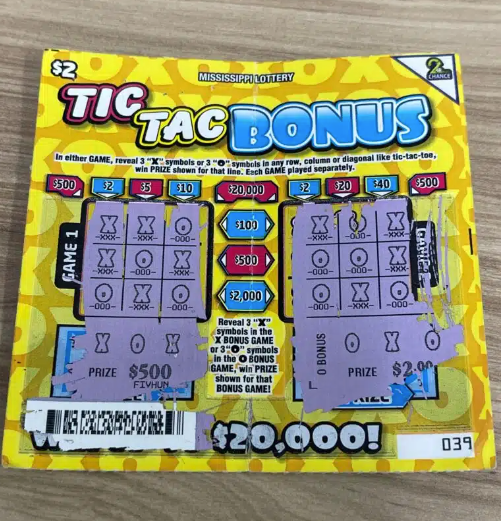Is justice being served? In three months, only 11 defendants serve time
Published 12:06 am Sunday, December 18, 2011

Ben Hillyer/The Natchez Democrat — Judges Forrest “Al” Johnson and Lillie Blackmon Sanders preside over the Adams County circuit courtroom in the county courthouse.
Editor’s note: The original version of this article misstated the counties included in the Sixth District Circuit Court. The updated version is correct.
NATCHEZ — Of the 55 felony indictments resolved in Adams County in the most recent three-month period, only 11 defendants were sentenced to serve any time behind prison bars.
For Adams County Sheriff Chuck Mayfield and his deputies, that’s a troubling statistic.
“I feel like people in this community are pretty much fed up with crime, and I think a lot of that falls on the system,” Mayfield said.
The sheriff’s office is doing its job to clean up the community, he said, but law enforcement often does not get the backup it needs from the judicial system.
Of the 55 cases, Circuit Court Judge Forrest “Al” Johnson sentenced seven people to prison time, and Circuit Court Judge Lillie Blackmon Sanders sentenced four to serve time.
Johnson was on the bench for 25 cases that were resolved from September to November. Sanders resolved 30 cases in that period.
Mayfield said the system in Adams County tends to be too lenient, especially in one judge’s court, though he did not want to point fingers.
“If you look at a particular official and look at the record, it’s going to be glaring,” Mayfield said.
Johnson’s seven sentences involving prison time totaled 79 years and five months in prison for a variety of offenses.
His average sentence was 11 years and four months.
Sanders’ four sentences totaled 27 years in prison, an average sentence of six years and nine months.
In addition to the four cases involving prison time, Sanders also sentenced six other men — all of whom were previously convicted of felonies — to serve the same amount time the defendants had served while waiting for trial, thereby adding no additional jail time.
Eleven of the 55 indicted cases were dismissed by the district attorney’s office without prejudice.
The sentences in the remaining 33 cases included probation, suspended jail time, fines, enrollment in drug court or enrollment in the states’ Regimented Inmate Discipline program, but no time in state prison.
Johnson and Sanders, who are elected by the voters in counties they serve, have jurisdiction over all felony cases in the Sixth Circuit Court District, which includes Adams, Amite, Franklin and Wilkinson counties.
Each judge serves three approximately one-month-long terms in Adams County per year, and spends the remaining terms in other counties.
Both judges served one term each from the months of September to November.
Defendants who are found guilty of, or have entered a guilty plea for, a felony enter the Mississippi Department of Corrections and serve their time in a state prison. A felony is defined as an offense graver than a misdemeanor and generally punishable by imprisonment for more than one year.
In most cases, the Adams County Jail and the Natchez City Jail house those awaiting trial who have not made bond or those serving sentences for misdemeanor offenses from justice court and municipal court.
Mississippi law requires judges to give prison sentences to guilty defendants with a prior felony conviction, District Attorney Ronnie Harper said.
For offenders not sentenced to prison but sentenced to drug court or the RID program, successful completion of the programs means judges will drop the charges without a conviction in most cases.
“(Court sentences) are solely up to myself or Judge Sanders,” Johnson said.
Johnson said if a defendant pleads guilty or is convicted of a drug sale, Mississippi law allows a window of sentencing that ranges from one year suspended to 30 years in the penitentiary.
“That (range applies) whether they’re selling 1 ounce or 10 kilos of cocaine,” Johnson said.
Circuit court judges do not have sentencing guidelines such as those in federal court, which provide methodical sentencing suggestions using a point system.
“Every judge is different,” Johnson said.
Johnson said he looks at factors such as the impact on a victim, the level of the defendant’s participation in the crime in instances of multiple defendants, age, criminal history and their individual situation.
Johnson said the judges have access to all of the original charges and indicted charges that might have been dropped as part of the plea agreement.
“(That information) is right in front of me,” Johnson said.
“It would be foolish if I didn’t consider (the other) counts.”
Multiple attempts over a number of weeks to contact Sanders for comment were unsuccessful.
When 80 percent of the men and women ACSO deputies arrested from September to November show up on the streets again, deputies get discouraged, Mayfield said.
“It makes the officers think that the bad guys have beaten them, but I tell them they may have beat the system but they didn’t beat you.
“If (criminals) get light sentences, you can’t do anything about that. That’s not our job to judge people but just to investigate, get evidence.”
But not all cases are resolved too lightly, in his opinion, Mayfield said.
“I’ve seen some (sentences) I thought were too harsh, and some I thought way too lax,” he said.
Mayfield said if defendants have legitimate jobs or are first-time offenders, they deserve some leeway in sentencing.
“I’ll work to try to help somebody who may have a chance,” Mayfield said.
“But there’s far too many people that get second and third chances. At some point there has to be a reckoning.
“I have to stand on my record … and any elected official has to stand on their records.”
Johnson and Sanders both ran unopposed during 2010 election cycle. The next election cycle for circuit court judges will be in 2014.
Johnson and Sanders have both served in their positions since 1995.


